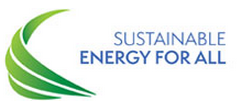A recent two-day workshop held in Tanzania and hosted by the United Nations Foundation’s Energy Access Practitioner Network and the World Wide Fund for Nature (WWF) gathered support of the UN’s Sustainable Energy for All initiative’s (SE4ALL) 2030 objectives delivering access to modern energy services for all. If the goal is met, it will double the rate of energy efficiency and also double the share of renewables in the global energy mix.
 Hon. George Simbachawene, Minister for Energy and Minerals, urged participants to discuss best practices and ways to meaningfully engage all stakeholders to achieve sustainable energy for all in Tanzania. “SE4ALL initiatives provide a working partnership with governments, parliamentarians, private sector companies, industries, and civil society towards a sustainable future free of poverty,” he urged.
Hon. George Simbachawene, Minister for Energy and Minerals, urged participants to discuss best practices and ways to meaningfully engage all stakeholders to achieve sustainable energy for all in Tanzania. “SE4ALL initiatives provide a working partnership with governments, parliamentarians, private sector companies, industries, and civil society towards a sustainable future free of poverty,” he urged.
Tanzania, one of SE4ALL’s 14 African current priority countries, is working to overcome challenges in providing access to energy for its entire population. According to the International Energy Agency’s World Energy Outlook 2014, 36 million people, some 76 percent of Tanzania’s population, do not have the benefits of electricity to power their homes, support education, deliver health care services, or drive economic development across commercial, agricultural and industrial sectors.
“The UN Sustainable Energy For All consultation provides a valuable opportunity to bring energy innovators and government to focus jointly on policy and implementation solutions to bring affordable and reliable energy services to Tanzania,” explained Richenda Van Leeuwen, executive director, Energy Access, UN Foundation. “It showcases how decentralized renewable energy solutions such as solar home systems and community micro-grids complement efforts underway on conventional grid extension.”
WWF Conservation Manager Amani Ngusaru notes that Tanzania will not achieve it vision of securing a middle income country status by 2025 and other goals unless the energy equation is solved. “Access to clean, safe and affordable sources of modern energy is critical for improving people’s livelihoods, and the Government is keen to adopt a mix of solutions to achieve Universal Access.”

